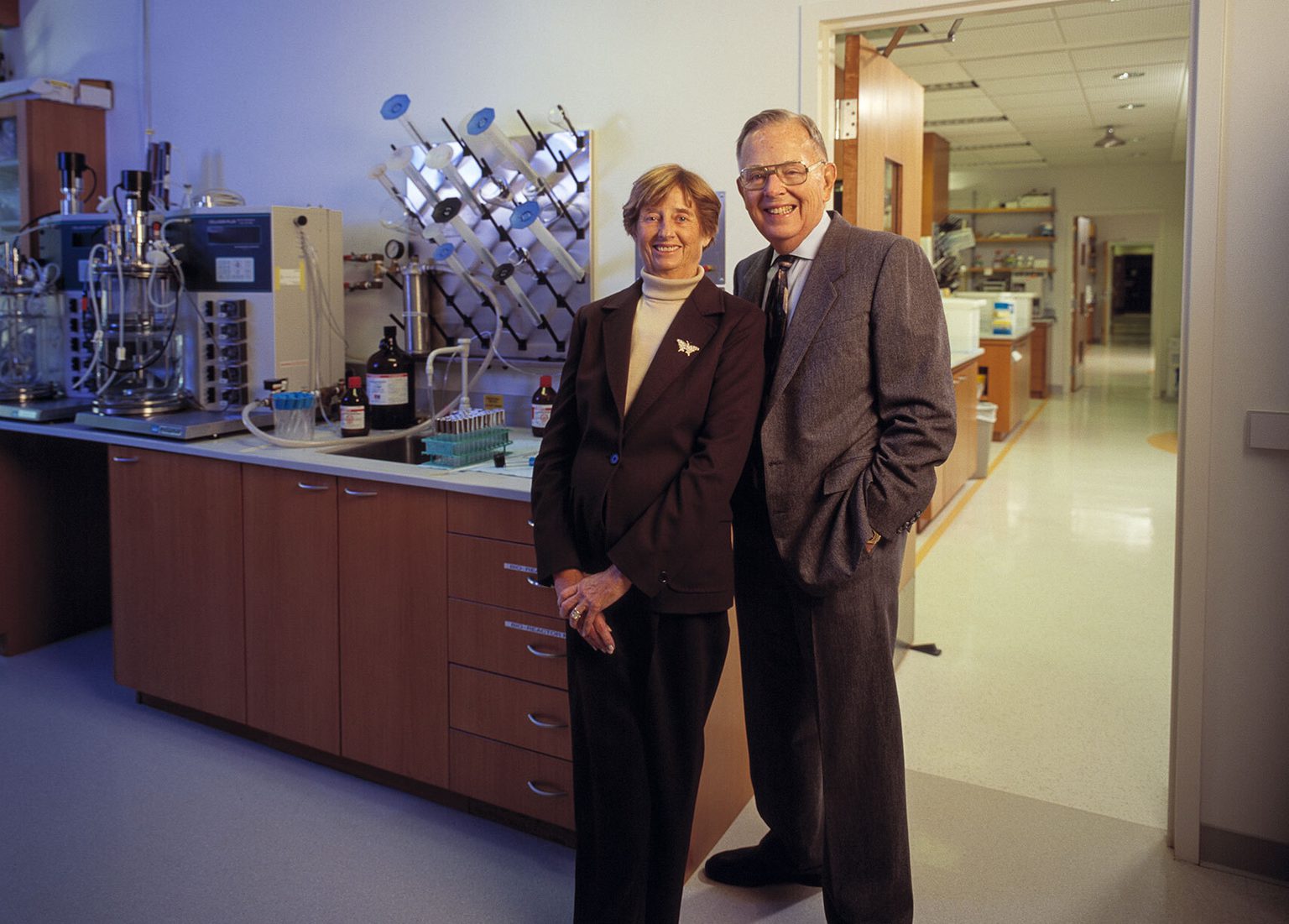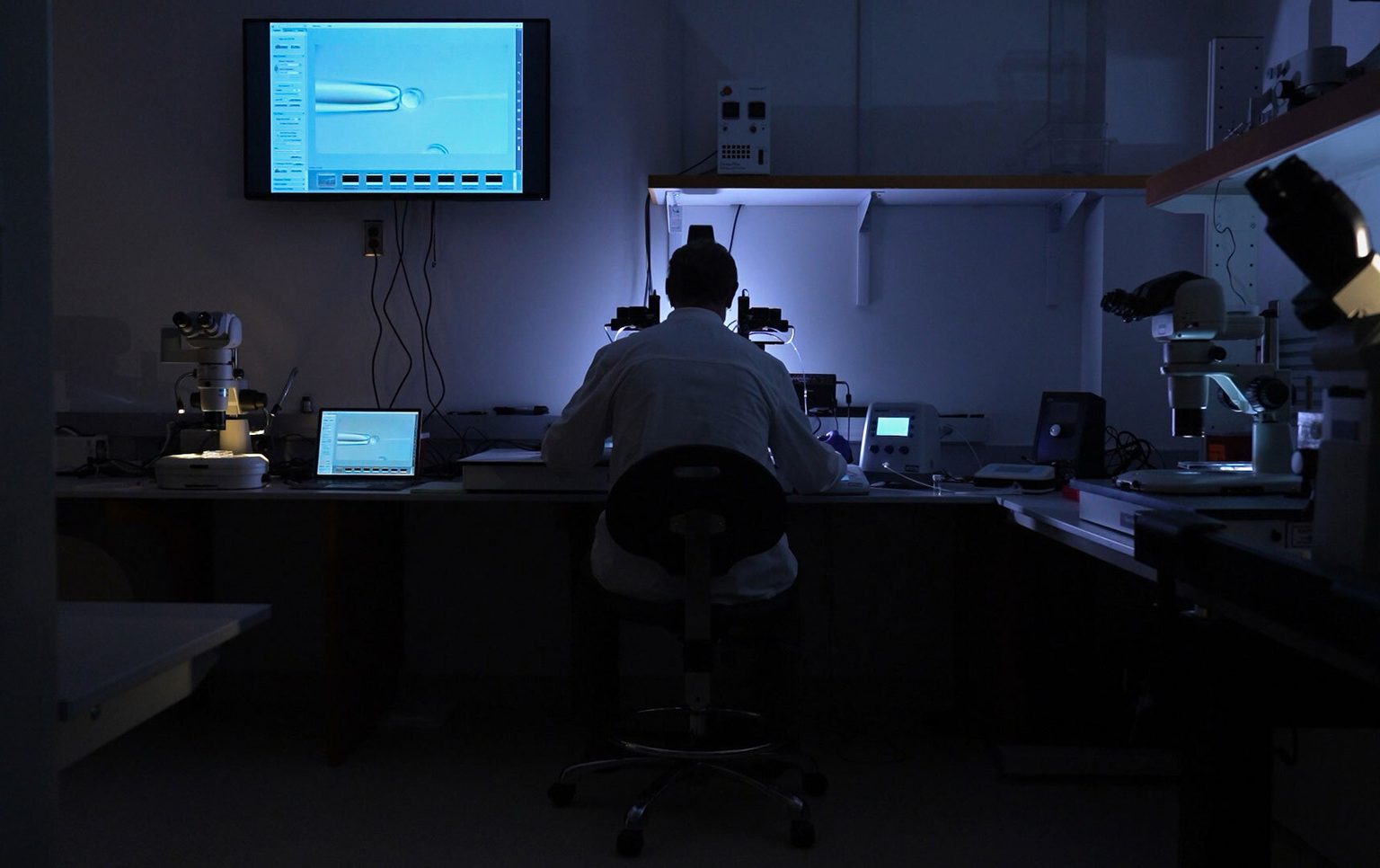#Stowers25: Celebrating 25 Years

12 November 2025
The spirit of our founders
Institute leaders reflect on the legacy of Jim and Virginia Stowers
Read Article
Kansas City, MO—Dr. Julia Zeitlinger, a Stowers Institute assistant investigator, has been named the recipient of the 2011 Hudson Prize by the M.R. and Evelyn Hudson Foundation.
Through the Hudson Prize, the Texas-based M.R. and Evelyn Hudson Foundation encourages early career scientists to pursue research that leads to important medical breakthroughs and treatments.

Zeitlinger will receive a one-time grant of $50,000 to take her search for the general principles that govern global gene expression into new directions. A deeper understanding of these mechanisms will help illustrate how higher organisms such as humans develop and how flaws in the regulation of genes may lead to diseases such as cancer.
“Julia is an extremely accomplished young scientist who is not afraid to take risks and venture into uncharted territory,” said Robb Krumlauf, Ph.D., scientific director of the Stowers Institute. “I am delighted that the M.R. and Evelyn Hudson Foundation has presented Julia with the resources to expand her research into novel areas of investigation during a very inventive and creative period in her career.”
Each one of our body’s trillions of cell contains the same genetic information that makes us who we are, but the details of our appearance, behavior and metabolism are determined by gene regulation. In a tightly orchestrated process, a complex network of regulatory factors governs which genes are turned on where, when and for how long.
For a long time researchers studied genes and their genetic switches one by one, but Zeitlinger decided to take it a step further. Instead of scrutinizing individual genes, she scours whole genomes to identify globally applicable rules that, one day, may allow her to predict the fate of individual cells.
Currently, Zeitlinger’s lab is exploring two main modes of gene regulation: regulation dictated by DNA sequence, and regulation based on the state of chromatin—the combination of DNA with the protein molecules that provide the packaging inside the cell’s nucleus.
In a recent study that compared the binding sites of a regulatory protein known as Twist in several species of fruit flies, Zeitlinger found that although the binding site had changed over the course of evolution, Twist could still bind most of them. This suggested that, as DNA sequences mutate over time, natural selection makes sure that important sequences, such as those to which Twist binds during embryonic development, remain functional. In addition to these results, the study also found that Twist interacts with partner transcription factors to specifically bind to DNA at the correct positions.
Zeitlinger also discovered that the way DNA is packaged in anticipation of future gene expression can predict the developmental potential of a cell. She found that RNA polymerase II, the protein complex that synthesizes RNA when a gene is turned on, is frequently found at genes that are turned off. The recruitment of RNA polymerase II to inactive genes is regulated during embryogenesis and poises these genes for future activation. Thus, while the regulatory information of genes is encoded in the DNA, the presence of certain protein molecules on the DNA can also help in predicting the gene expression program of cells in the future.
In other work, the Zeitlinger lab is "reading" chromatin to discern the developmental history of cells, with the hope that the information also can predict the cell's future course.
Zeitlinger completed her Ph.D. in molecular biology at the European Molecular Biology Laboratory in Heidelberg in 2000. She conducted her postdoctoral training at the Whitehead Institute for Biomedical Research at Massachusetts Institute of Technology before joining the Stowers Institute in 2007.
About the Hudson Foundation
The Hudson Foundation was established in 1991 to further the Hudsons’ lifelong interest in supporting education, medical research, children’s issues, and the arts. M.R. Hudson was the founder of Hudson Oil Co. and later Fisca Oil Co.
About the Stowers Institute
The Stowers Institute for Medical Research is a non-profit, basic biomedical research organization dedicated to improving human health by studying the fundamental processes of life. Jim Stowers, founder of American Century Investments, and his wife Virginia opened the Institute in 2000. Since then, the Institute has spent over $ 900 million dollars in pursuit of its mission.
Currently the Institute is home to over 550 researchers and support personnel; 22 independent research programs; and more than a dozen technology development and core facilities.
#Stowers25: Celebrating 25 Years

12 November 2025
Institute leaders reflect on the legacy of Jim and Virginia Stowers
Read Article
#Stowers25: Celebrating 25 Years

07 November 2025
Highlighting 14 high-impact discoveries from the Stowers Institute's inception
Read Article
#Stowers25: Celebrating 25 Years

28 October 2025
Jim and Virginia Stowers envisioned a world-class research institute in Kansas City with a mission to unravel the secrets of life. Making their mission a reality required a deliberate commitment to hire the brightest scientists and invest heavily in technology to support innovation.
Read Article
